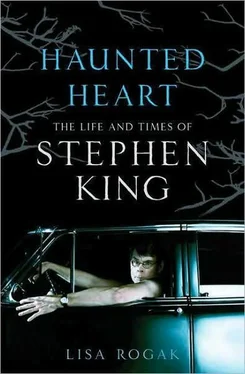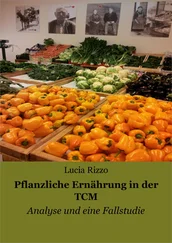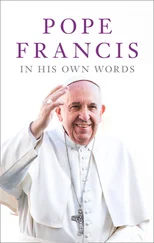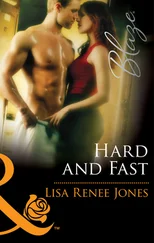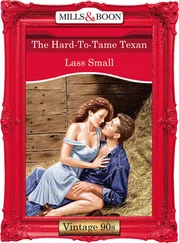Although many students had read their copies of The Village Vomit and roared with laughter, a number of people at the school, mostly faculty, didn’t appreciate Steve’s play.
He earned a newfound respect from some of the students and a sigh of relief from many teachers who were glad to see this brilliant troublemaker on his way out the door. At his high school graduation, Steve was relieved as well, since it meant that he could solely focus on reading and writing in college, a step he hoped would bring him that much closer to living his dream of being a full-time writer.
While Steve was working at Worumbo Mills, he was fascinated by the hordes of rats that constantly wandered throughout the mill. “While I was waiting for my bin to fill up, I’d throw cans at the rats,” he said. “They were big guys, and some of them would sit right up and beg for it like dogs.” His supervisor asked him to join a cleanup crew to work in the basement over the July Fourth weekend, but he declined. However, the following week he heard loads of stories from those who had worked over the holiday about aggressive rats, the water running through the basement, and a particularly sadistic supervisor, and Steve filed them away.
In late August of 1966, he headed north to Orono to enroll as a freshman at the University of Maine. He signed up as an English major and took courses at the College of Education so he could become certified to teach in case his dream of writing full-time took a little longer to materialize.
His brother, David, had entered the university several years earlier. When both were students, Ruth would send them $5 each week so they’d have some spending money. “After she died several years later, I found she had frequently gone without meals to send us the money that we’d so casually accepted,” he said. “It was very unsettling.”
On the first day of freshman orientation, Steve met up with several of his buddies—Lew Purinton and Pete Higgins—from the college track at Lisbon High who had also signed up at the university.
According to Higgins, Steve almost got kicked out of school before classes even started. It was the custom on campus for fraternities to hold a “smoker,” where groups gathered in a lounge or a living room to look over the freshmen. “They were evaluating the students to see if they wanted to accept any,” said Higgins.
Pete, Steve, and a few other students from Lisbon went to one smoker together where they met a student who wanted to light some fireworks he had left over from the Fourth of July and asked if they wanted to watch.
The group from Lisbon High stood and watched while their new friend lit the first fuses. “We ran like crazy when they went off,” said Higgins. “They weren’t just bottle rockets and sparklers, but meaty kaboomers loud enough to shatter a number of dormitory windows. The administration was called and announced if they found whoever was responsible for the fireworks, they would be kicked out of the incoming class of 1966 before they could start. We would have been disciplined because we were standing right there when the fireworks went off, and if Steve was caught, it could have stunted his whole career.”
The first time Rick Hautala, another freshman English major, saw his new classmate, Steve was standing in the lunch line with his nose buried in a paperback book. “He was reading the kind of junk I liked to read,” said Hautala. “At suppertime he’d be in the line again, but with his nose in a different book. It seemed like he read three books a day since he always seemed to be reading a different book at every meal.”
Though both were English majors, their paths of study were widely divergent. “Steve stuck more with modern poetry and twentieth-century literature, while I focused more on Renaissance and medieval literature,” said Hautala. “His writing stood out from what the majority of students were writing. He wasn’t trying to be pretentious or artsy, he was writing real stories instead of precious little reminiscences.”
“Steve had a very strong point of view,” said classmate Michael Alpert. “He didn’t believe in the official canon—the Harvard curriculum—at all. He thought many of the more popular writers had more to say. He didn’t just talk about subject matter, he talked about language. His sensibility was already formed even back then.”
Jim Bishop had King as a student in freshman English. “He was never without a paperback book, and he talked about authors of popular fiction the other students and professors had never heard of,” said Bishop. “Even then, he saw himself as a famous writer and thought he could make money at it. Steve was religious about writing, and he wrote continuously, diligently. He created his own world.”
In the turmoil of living away from home for the first time and getting accustomed to a whole new slew of classes and a variety of students who were nothing like those back home—i.e., they had money and would occasionally lord it over the others—Steve managed to write his first novel, “The Long Walk,” during his first two semesters of college. He polished it in the summer between his freshman and sophomore year, and then in the fall of 1967, he heard about a first-novel competition run by the noted editor Bennett Cerf at Random House. He sent off a copy of the manuscript, and it came back with a form rejection slip and no scrawled notes from the editor, which he had gotten used to from his submissions to the pulp magazines. He became discouraged and tucked the manuscript away in a drawer.
However, not all was bad news. Steve made his first professional sale to a pulp magazine, Startling Mystery Stories, for a story called “The Glass Floor.” They paid him the princely sum of $35. By his own count, before making the sale, he had received about sixty rejection slips.
He was on his way. Someone besides his mother and his classmates thought his work was good enough to pay real money for it.
Steve had first showed up on campus with a Barry Goldwater bumper sticker on his car, evincing his family’s stalwart Republican roots. Between his sophomore and junior years, Steve discovered that the political beliefs of his youth had been challenged, not only by the Vietnam War, but by the peace movement that was inundating much of the country. He’d gone from the rock-ribbed Republicanism of his youth to a radical form of liberalism that was sweeping across college campuses everywhere, even in a remote corner of Maine.
In August of 1968, Steve decided to head for Chicago to go to the Democratic National Convention to support his preferred candidate, Eugene McCarthy, a senator from Minnesota running against President Lyndon Johnson, who had promised to pull American troops out of Vietnam if elected. At the time, the country was in chaos. Martin Luther King had been killed in April and Robert Kennedy in June, so the stage was set for a contentious convention. With a hundred bucks for spending money, Steve headed for Chicago, staying at YMCAs along the way.
At the convention, word quickly spread that police were taunting the protesters, and vice versa, which resulted in violent clashes between the two groups. Steve was demonstrating outside the convention hall with thousands of other people when tempers suddenly flared and he was maced. He couldn’t see, but he somehow found his way back to the YMCA where he was staying.
In the aftermath of the convention, he became swept up in the political fury and turmoil that was escalating. When he returned to Orono for the start of his junior year in the fall of 1968, it seemed that overnight all the rules had changed. The university was not immune to students demanding radical change in classes and throughout the entire campus. And when it came to the stodgy curriculum of the English Department, Steve was one of the lead instigators.
Читать дальше
